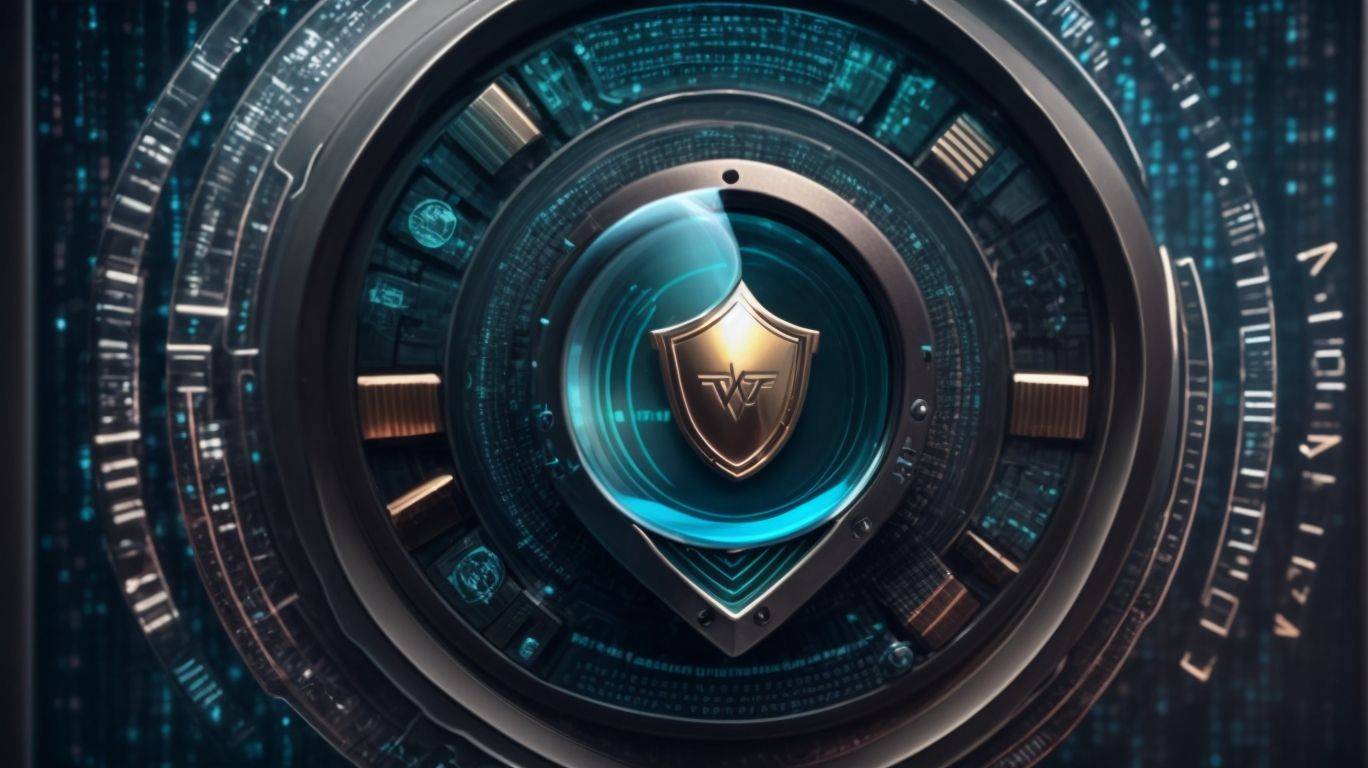Looking to enhance your skills in threat intelligence and stand out in the cybersecurity industry? Look no further! This article provides an in-depth overview of threat intelligence certifications, covering areas such as exam formats, certification objectives, and unique features of programs like GCTI with CyberLive and C|TIA.
Discover the target audience for these certifications, the benefits of becoming a certified threat intelligence analyst, and the significance of threat intelligence teams for organizations. Stay tuned to learn more about the market demand for threat intelligence analysts and how comprehensive cyber threat intelligence training can boost your career.
Key Takeaways:
Overview of Threat Intelligence Certifications
Threat Intelligence Certifications provide professionals in the cybersecurity field with specialized knowledge and skills to effectively analyze and respond to cyber threats.
These certifications, such as GIAC, CTIA, and CREST, play a pivotal role in equipping individuals with the necessary expertise to navigate the complex landscape of cybersecurity. By obtaining these certifications, candidates not only demonstrate their competency in threat intelligence but also showcase their commitment to staying updated with the latest industry trends and advancements in cybersecurity.
The rigorous training and examination processes involved in these certification programs ensure that professionals are well-prepared to handle various threat analysis scenarios efficiently. These certifications validate the skill set and knowledge base of individuals, making them highly sought-after in the cybersecurity job market.
Areas Covered in Threat Intelligence Certification Programs
Threat Intelligence Certification Programs encompass a wide range of crucial topics, including threat analysis, cybersecurity skills, and exam preparation.
Target Audience for Threat Intelligence Certifications
Threat Intelligence Certifications cater to a diverse audience, including cybersecurity professionals, junior team members, and security operations center personnel in various organizations.
Unique Features of GCTI with CyberLive and C|TIA Programs
The GCTI program with CyberLive integration and C|TIA certification offers unique features such as immersive lab environments, flexible training budgets, and specialized tracks for threat hunters.
One standout aspect of the GCTI program is the utilization of CyberLive technology, providing learners with real-world scenarios and live training environments that simulate actual cyber threats, allowing them to develop practical skills.
The program is designed to be cost-effective, offering various options to fit different training budgets, making it accessible to a wide range of learners looking to enhance their threat hunting capabilities.
In addition, the C|TIA certification not only validates the expertise of professionals in the field but also introduces renewal fees to ensure that certified individuals stay up-to-date with the latest trends and practices in cybersecurity.
Exam Format and Delivery Methods
Threat intelligence certification exams follow diverse formats and delivery methods, including online proctoring through platforms like ProctorU and PearsonVUE, to assess candidates’ practical experience and knowledge.
These exams often consist of a combination of multiple-choice questions, scenario-based assessments, and practical simulations to evaluate the test-takers’ abilities comprehensively. Online proctoring services play a pivotal role in ensuring the integrity of the examination process by monitoring candidates remotely through webcams and screen-sharing technology. This method enables the certification authorities to verify the identity of test-takers and prevent any form of cheating or fraudulent behavior during the exam.
Exam Certification Objectives & Outcome Statements
Threat intelligence certification exams aim to validate candidates’ skills and knowledge in key areas such as threat analysis, cyber defense, and incident response.
Additional Resources for Certification Preparation
Candidates pursuing threat intelligence certifications can access a variety of resources for exam preparation, including test preparation materials, online courses, and skill-building programs.
Preparation for threat intelligence certifications requires diligent effort and utilization of diverse materials.
- Test preparation materials can range from practice questions and study guides to mock exams that simulate the real certification test environment. These resources aid in familiarizing candidates with the format and types of questions they may encounter.
- Online courses offer interactive learning modules, live webinars, and forums for discussions to deepen understanding and provide real-time assistance.
- Skill-building programs focus on enhancing technical competencies essential for threat intelligence roles, covering areas such as cyber threat analysis, incident response, and security operations.
Practice Tests and Training Affiliates
Practice tests and training affiliates play a vital role in helping candidates prepare effectively for threat intelligence certifications, offering hands-on experience and guidance tailored to specific certification requirements.
By simulating real exam conditions, practice tests not only assess a candidate’s knowledge but also enhance time management and confidence. Training affiliates, such as GIAC and MITRE Engenuity partners, provide valuable resources like study materials, online courses, and expert-led training sessions to further enrich the learning experience. These affiliates serve as a bridge between theoretical knowledge and practical application, aiding in the development of critical thinking skills and technical proficiency essential for success in certification exams.
Benefits of Certified Threat Intelligence Analysts
Certified Threat Intelligence Analysts bring significant benefits to organizations by enhancing threat detection capabilities, improving response to cyber attacks, and employing advanced methods and techniques in threat analysis.
Learning Objectives of Certification Programs
The learning objectives of threat intelligence certification programs are designed to equip candidates with essential skills, knowledge, and practical experience in the field of cyber threat intelligence.
These programs aim to cultivate a deep understanding of malware analysis, incident response methodologies, network security, and cyber threat profiling. Participants are guided to develop proficiency in utilizing threat intelligence platforms, data analysis tools, and digital forensics technologies to detect, prevent, and respond to a wide range of cybersecurity threats. The curriculum emphasizes threat hunting techniques, intelligence sharing practices, and the ability to identify vulnerabilities within network infrastructures. By gaining hands-on experience with real-world case studies and scenarios, students enhance their capability to mitigate risks and protect organizations from evolving cyber threats.
Significance of Threat Intelligence Teams for Organizations
Threat intelligence teams play a crucial role in organizations by proactively identifying and mitigating cyber threats, utilizing advanced methods and techniques to enhance security posture, and sharing valuable knowledge to prevent future attacks.
These specialized teams are equipped with the latest tools and technologies to monitor, analyze, and respond to potential threats in real-time. Threat intelligence feeds are continuously monitored to stay ahead of emerging threats, allowing organizations to fortify their defenses proactively. By leveraging threat intelligence platforms and collaborative networks, these teams gather actionable insights and indicators of compromise to strengthen overall cybersecurity resilience.
Market Demand for Threat Intelligence Analysts
The market demand for skilled threat intelligence analysts is on the rise, with organizations seeking professionals certified in programs like CTIA, CRTIA, and other specialized certifications to bolster their cyber defense capabilities.
As the frequency and sophistication of cyber threats continue to escalate, the role of threat intelligence analysts has become increasingly crucial in maintaining the security posture of organizations across various industries. CTIA (Certified Threat Intelligence Analyst) and CRTIA (Certified Reverse Engineering Threat Intelligence Analyst) are among the most sought-after certifications, equipping professionals with the essential knowledge and hands-on skills to proactively identify and mitigate potential security risks.
Employers are recognizing the value of hiring individuals with practical experience in threat intelligence, as theoretical knowledge alone may not suffice in combating evolving cyber threats. The industry’s shift towards prioritizing practical expertise has highlighted the significance of certifications like CTIA and CRTIA, making them highly desirable for aspiring professionals looking to enter this specialized field.
Importance of Comprehensive Cyber Threat Intelligence Training
Comprehensive cyber threat intelligence training is essential for equipping professionals with the skills, knowledge, and techniques required to effectively analyze threats, secure critical data, and achieve optimal exam results.
By undergoing this detailed training, individuals can gain a deep understanding of threat analysis strategies, hone their incident response capabilities, and enhance their cyber defense proficiency. Such training programs not only focus on theoretical concepts but also provide practical hands-on experience to simulate real-world cyber threat scenarios. This hands-on approach enables learners to develop a proactive mindset in identifying vulnerabilities, preventing breaches, and responding swiftly to cyber incidents.
Program Information and Suitability
Understanding program information is essential to determine the suitability of threat intelligence certifications for professionals and organizations seeking to enhance their cybersecurity capabilities.
When evaluating these certifications, individuals and companies should consider various factors such as the certification curriculum, exam format, renewal requirements, and industry recognition.
Obtaining a certification in threat intelligence can significantly boost career opportunities and demonstrate expertise in identifying and mitigating cyber threats. Certified professionals often have access to exclusive job listings and networking opportunities within the cybersecurity community. Different certification providers offer distinct benefits, so it’s crucial to research and choose the one that aligns best with your career goals and organizational needs.
Accreditations and Recognitions for Certifications
Certifications in the threat intelligence field often receive accreditations and recognitions from industry bodies and organizations, validating the credibility and relevance of the certification programs for cybersecurity professionals.
These recognitions serve as a testament to the high standards and rigorous criteria set by governing bodies within the cybersecurity sector. The industry validation provided by these accreditations further highlights the importance and trustworthiness of such certifications in the eyes of employers and peers in the field. Professionals who hold these accredited certifications showcase their dedication to continuous learning and staying updated with the latest trends and threats in the cybersecurity landscape.
This kind of quality assurance ensures that certified individuals have the necessary skills and knowledge to effectively mitigate cyber threats and protect sensitive data.
Accessing Brochures and Program Information
Accessing brochures and detailed program information is crucial for professionals and organizations considering enrolling in threat intelligence certification programs to make informed decisions about their educational and career advancement goals.
By reviewing the available brochures and comprehensive details of the programs, individuals can gain valuable insights into the curriculum, instructors, certification requirements, and potential career outcomes.
For professionals aiming to enhance their skills and stay updated with the latest trends in threat intelligence, having access to program information is essential for selecting the most suitable certification option based on their expertise and career objectives.
Organizations seeking to upskill their workforce in cybersecurity can utilize program information to evaluate how a particular certification aligns with their security strategies and fulfills their talent development needs.
Frequently Asked Questions
What is a Threat Intelligence Certification?
A Threat Intelligence Certification is a credential that validates an individual’s knowledge and expertise in the field of threat intelligence. It certifies that the person has a deep understanding of threat intelligence concepts, tools, and best practices.
Why should I pursue a Threat Intelligence Certification?
Obtaining a Threat Intelligence Certification can demonstrate to employers and clients that you possess the necessary skills and knowledge to effectively analyze and respond to potential threats. It can also enhance your career opportunities and increase your value in the job market.
What are the requirements for earning a Threat Intelligence Certification?
The specific requirements for earning a Threat Intelligence Certification may vary depending on the certifying organization, but typically include passing a standardized exam that covers a range of threat intelligence topics, such as threat analysis, threat modeling, and threat detection.
How long does it take to earn a Threat Intelligence Certification?
The amount of time it takes to earn a Threat Intelligence Certification can vary depending on your level of experience and the specific certification program you choose. Some programs may require a certain amount of hands-on experience in addition to passing the exam, while others may have a shorter time commitment.
What are some popular Threat Intelligence Certifications?
Some popular Threat Intelligence Certifications include the Certified Threat Intelligence Analyst (CTIA) offered by EC-Council, the GIAC Threat Intelligence (GCTI) from SANS Institute, and the Threat Intelligence Management (TIM) certification from Security University.
Is there a difference between a Threat Intelligence Certification and a Cybersecurity Certification?
While both certifications may cover some similar topics, such as threat analysis and incident response, a Threat Intelligence Certification specifically focuses on the collection, analysis, and dissemination of threat intelligence data. A Cybersecurity Certification, on the other hand, may cover a broader range of cybersecurity principles and practices.





